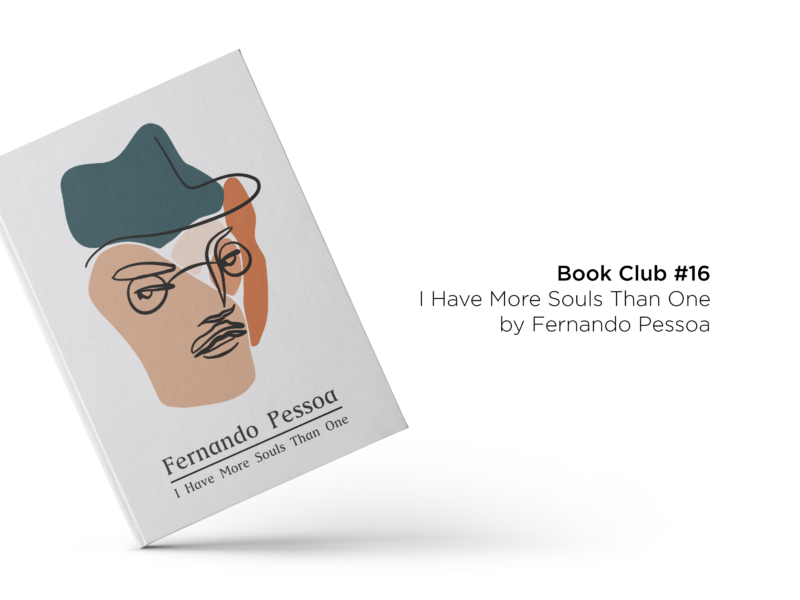In a first for the book club, this month we’re talking poetry. On a whim, I threw Fernando Pessoa’s I Have More Souls Than One into the cart of my last Waterstones order. It’s one of the Penguin Modern series of fifty new books celebrating the pioneering spirit of the iconic Penguin Modern Classics series, with each one offering a concentrated hit of its contemporary, international flavour.
I have been a huge fan of Pessoa’s writing since reading The Book of Disquiet whilst travelling, but I haven’t spent as much time focusing in on his poetry despite it being the writing for which he’s probably best known.
Born in 1888, Fernando Pessoa was a Portuguese writer, poet and translator known best for his use of “heteronyms”, fictional characters with their own voices to whom Pessoa credited much of his writing. Each of these characters had a date of birth, often not too dissimilar to Pessoa’s own, and a personal history. These backstories were all intertwined, with Pessoa’s heteronyms having relationships of their own and with one another. Pessoa, whose name fittingly means person, frequently denied he existed as a single distinct individual but that he was a vessel for multiple characters, for “more souls than one”.

My alternative cover design for I Have More Souls Than One
His poetry, as written by Pessoa and his heteronyms, displays that desire to be more than just one man particularly clearly. Within his poetry as well as using his own identity, he wrote as Alberto Caeiro, “an untutored child of nature”; as Ricardo Reis, “a melancholic doctor dedicated to classical forms and themes”; and as Alvaro de Campos, “a naval engineer and world traveller who was a devotee of Walt Whitman”. Within I Have More Souls Than One, poems are grouped by heteronym which means you can easily see how each character has a distinct voice.
However, these characters aren’t the only appeal of Pessoa’s poetry. His writing is introspective, often, unsurprisingly on the nature of identity and universal whilst being highly localized to early twentieth century Portugal. It’s modernist in its eschewing of traditional structures, and it’s clever in its creation of new ones. It’s also just funny in places.
Reading I Have More Souls Than One is a fascinating insight into the work of one man, Fernando Pessoa, whilst offering the joy and diversity of getting to read the works of four highly inventive poets
If you’re at all interested in learning more about Pessoa or his writing, I’d highly recommend picking up I Have More Souls Than One as a taster. I’m planning on trying out a few more of the Penguin Modern series, as they are perfect introductions to authors and styles you’re less familiar with, without the need to pick up a full novel or book of poetry and daunting feeling that can come with it.
SOME QUESTIONS TO PONDER AS YOU READ
- What differences and similarities can you see in the different voices in the poems?
- Do you have a favourite heteronym?
- Do you have any alter egos or characters within you?
- How does varying the form of Pessoa’s poetry effect how you read and feel it?
IF YOU WANT SOME FURTHER READING TRY…
- The TLS has the best short review of Pessoa’s poetry I’ve found so far
- This intro to Carmela Ciuraru’s Fernando Pessoa & His Heteronyms gives you a lot more depth on how Pessoa’s other characters came to life
- If you’re interested in reading more from Pessoa, NPR has a lovely piece on The Book of Disquiet
- Adam Kirsch wrote a wonderful bio/primer to Pessoa for The New Yorker
IF YOU WANT MORE BOOKS LIKE THIS HAVE A LOOK AT…
- Fernando Pessoa’s The Book of Disquiet
- Fernado Pessoa’s The Poems of Fernando Pessoa
- Bohumil Hrabal’s Too Loud A Solitude
- More of the Penguin Moderns Series


